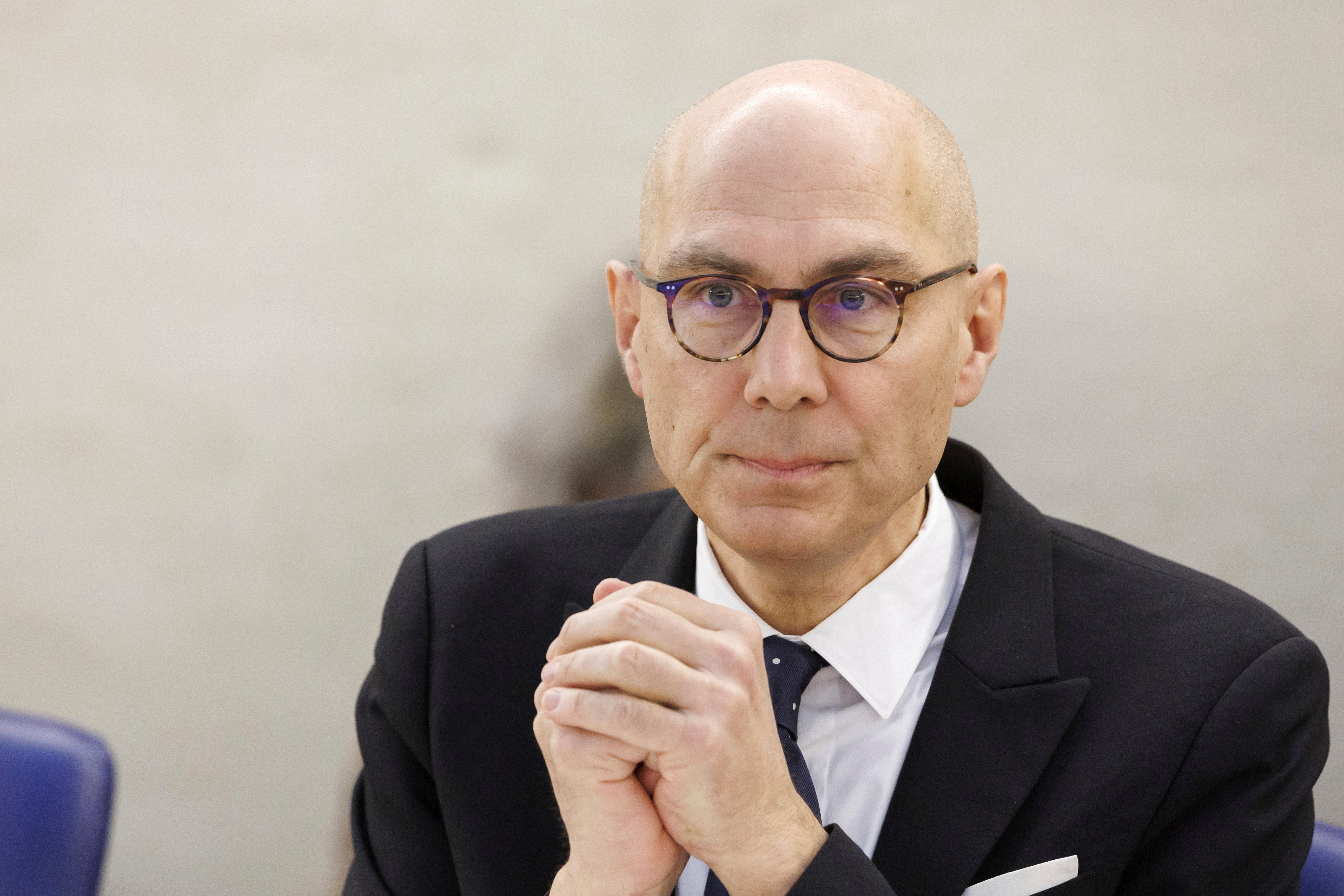UN human rights body takes up concerns about Quran burnings in Europe
The U.N. human rights chief used a special debate on burnings of the Quran in Sweden and other European countries to tread the fine line between freedom of expression and respect for religious belief

Your support helps us to tell the story
From reproductive rights to climate change to Big Tech, The Independent is on the ground when the story is developing. Whether it's investigating the financials of Elon Musk's pro-Trump PAC or producing our latest documentary, 'The A Word', which shines a light on the American women fighting for reproductive rights, we know how important it is to parse out the facts from the messaging.
At such a critical moment in US history, we need reporters on the ground. Your donation allows us to keep sending journalists to speak to both sides of the story.
The Independent is trusted by Americans across the entire political spectrum. And unlike many other quality news outlets, we choose not to lock Americans out of our reporting and analysis with paywalls. We believe quality journalism should be available to everyone, paid for by those who can afford it.
Your support makes all the difference.The U.N. human rights chief used a special debate on Tuesday about burnings of the Quran in Sweden and other European countries to tread a fine line between freedom of expression and respect for religious beliefs, while broadening his call for respect of “all others” including migrants, LGBTQI+ people, and women and girls who wear headscarves.
Volker Türk, speaking to the Human Rights Council, took on hatred and discrimination that fans violence amid growing concerns about “manufactured” shows of intolerance aimed to drive a wedge between civilizations. Recent burnings of the Quran have had sweeping repercussions and even weighed on Turkey’s reflections about whether to admit Sweden into NATO.
The debate, coming during the council's summer session, shaped up largely along the lines of Western countries that condemned such intolerance but affirmed the right to freedom of expression, and predominantly Muslim countries who want governments to strengthen their legal arsenals to ban expressions of religious intolerance and hatred that could lead to violence, discrimination or hostility.
“We’d like to stress that freedom of expression is an ethical value that should spread to peaceful coexistence rather than causing a clash of civilizations,” said Prince Faisal bin Farhan, the foreign minister of Saudi Arabia, in a video statement. “We should spread values of tolerance.”
Türk denounced the Quran burnings in Europe among recent incidents that “appear to have been manufactured to express contempt and inflame anger, to drive wedges between people and to provoke transforming differences of perspective into hatred and perhaps violence.”
Beyond matters of legislation or government, he said people must show respect to “all others” and insisted that “advocacy of hatred that constitutes incitement to violence, discrimination and hostility should be prohibited in every state.”
Türk cautioned that hate speech of all kinds was on the rise — even if it isn't always deemed to incite violence.
"Dehumanizing women and denying their equality with men; verbally abusing Muslim women and girls who wear a headscarf; sneering at people with disabilities; making false claims that migrants or people of specific ethnicities are more likely to engage in crime or smearing LGBTQ+ people — all such hate speech is similar in that it stems from the baseline notion that some people are less deserving of respect as human beings,” he said.
Pakistan and Palestine led a push for a council resolution that, among other things, called on countries to take steps to “prevent and prosecute acts and advocacy of religious hatred that constitute incitement to discrimination, hostility or violence.”
The United States said it wouldn't support the resolution amid concerns that it could trample on a fundamental right to freedom of expression.
“We know from experience that attempting to ban such expression actually usually amplifies it further by bringing even more attention to it and often serves as a catalyst for further hatred," said Rashad Hussain, the U.S. ambassador-at-large for international religious freedom, expressing U.S. opposition to so-called “blasphemy" laws.
“Such laws also fail to address the underlying causes of bigotry,” he said, calling instead for efforts to "reinvigorate education and interfaith intercultural dialogue to confront hate speech.”
A vote was expected Wednesday morning.